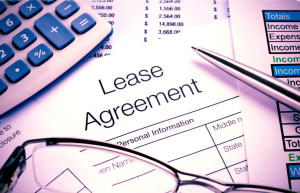November 8, 2015
 The business environment in most cases is extremely dynamic and fiercely competitive. It is not unusual for business to fold up even after making a great start. Many retail businesses need to keep on experimenting with location, and hence may be found to be closing down one store only to open up another one somewhere else. The reason for wanting to terminate commercial property leases can be varied; the business at that location could be bleeding money, or the demographics may have changed substantially, or the competition may have been too hot. Businesses need to enter into commercial leases for property all the time and may also need to foreclose them a lot many times too. Before walking out of the lease, you should carefully consider a number of things:
The business environment in most cases is extremely dynamic and fiercely competitive. It is not unusual for business to fold up even after making a great start. Many retail businesses need to keep on experimenting with location, and hence may be found to be closing down one store only to open up another one somewhere else. The reason for wanting to terminate commercial property leases can be varied; the business at that location could be bleeding money, or the demographics may have changed substantially, or the competition may have been too hot. Businesses need to enter into commercial leases for property all the time and may also need to foreclose them a lot many times too. Before walking out of the lease, you should carefully consider a number of things:
What Do You Really Want?
Closing a business at a particular location could often be the solution that is obvious but one that is not necessarily always right. Before even attempting to discuss the lease termination, be sure that you have considered every option available to you. If the reason for moving out is a need for more space, then your landlord could come to your rescue with offer for a fresh space and facilitate the lease termination. It is also important to evaluate if the necessity of terminating the lease is born out of personal circumstances rather than commercial ones. It is important for you to understand the real reasons for the change as this will give you a platform for effectively negotiating with the landlord.
Quantify Lease Termination Benefits
The option of terminating your lease can only be beneficial if the savings you get out of it is more than the compensation required to be paid to the landlord. The only way you can arrive at a rational decision is if you can quantify the value accruing to you so that you do not end up paying more than what you are benefiting by. One way of calculating the benefit is by finding the difference between the net profits expected to be delivered by the new location over the old one. If the reason for lease termination is to get time to attend to personal issues, then you would need to establish if the monetary loss on account of the termination is more than offset by what you are trying to achieve after you close down your business.
Identify the Landlord’s Financial Impact
To ensure that you are able to negotiate to good lease termination it is also necessary for you to establish the impact of the termination on the landlord. The most obvious is that he would lose out on the lease rentals till such time he can get a new tenant to occupy the space and start paying the rentals. If the business environment is down, then he may not get the same rental as what you had been paying, however the opposite could be equally true if the space is commercially attractive. Lease termination negotiation goes better of you can get an idea of the redeployment opportunities available to the landlord.
Compensate Your Landlord
Among the ways you can add value to the solving the landlord’s predicament is find creative solutions to what the landlord could do with the space becoming available. If you have been able to assess the location constraints that led to your business failing and how other business can thrive in the same property, you may be able to convince the landlord to change the usage of the space and get a better income stream. You could also tap the local real estate brokers for market information, including the duration that the landlord is likely to take to find a new tenant and the sort of rentals he can expect to derive out of his property. You could also try and identify a prospective tenant for him who can take over your lease. There are a number of internet resources that you can take the assistance of to locate a prospective lessee.
Nancy Mulligan is the senior business reporter at one of the top financial dailies. She periodically writes on trends in commercial real estate and financing. She also consults for leasequit.com.
Tags:
Assets,
economy,
home loans,
Lease,
money,
mortgage,
Property,
real estate
August 27, 2013
 Saving your home loan deposit can seem like a difficult task, especially if you are a first home buyer. Luckily, there are a range of things you can do that will help to make it happen sooner than you might think. Here are 5 top tips for saving a home loan deposit efficiently and effectively.
Saving your home loan deposit can seem like a difficult task, especially if you are a first home buyer. Luckily, there are a range of things you can do that will help to make it happen sooner than you might think. Here are 5 top tips for saving a home loan deposit efficiently and effectively.
Cut Your Unnecessary Spending
The first step to boosting your savings is to immediately start cutting down on your unnecessary spending. If you want to get a home loan deposit together as fast as possible, it’s worthwhile scaling back what you spend on other things. Every little bit counts, and it can be as small as bringing your own coffee to work, eating at home instead of dinner out, and cutting out impulse spending on luxury items.
Analyse Your Budget
Now that you’ve made a start, it’s time to take a good look at your budget. Analysing your income and expenses will help you to ascertain where your money is going, and how it can be optimised to create a more effective savings plan. Ensure that your budget is clear and comprehensive, and use it to help you maximise your income.
Dedicated Savings
To get the best results, consider opening a new savings account specifically dedicated to your home loan deposit. Look for something that is high interest with low fees to ensure that your savings continue to grow. Divert a set amount of your weekly wage directly into this account, and be sure to add extra contributions whenever you can afford it.
Consider a Professional’s Input
If you feel like you have tried all of the above and still haven’t seen a great boost to your savings, it might be time to call in some expert assistance. Talking to a financial professional can give you new ideas and strategies on the smartest ways to save, helping you to own your dream home sooner. You may even be able to get great advice from a lender, particularly those with a history of helping people to achieve their financial goals. Agencies such as Fox Symes are famous for their quality debt solutions, and have also become specialised in offering great value home loans. By choosing a lender like this, you are truly getting the best of both worlds, and will have all the help you need to effectively save your deposit, fast!
Stick to It!
Now that you have a great savings plan in place and your finances are working efficiently, it’s essential that you focus on the long term. It’s easy to feel discouraged if you get caught up in day to day expenses, and the trick to success is to have a positive attitude and always remember your end goal. Never forget that all of your hard work now is allowing you to achieve the incredible goal of owning your dream home in the future.
With these top tips, you will be able to start a quality savings strategy to help you buy your own home sooner than you might think. Time is of the essence, and when you’re looking at saving a home loan deposit fast, every day counts. Get started today and enjoy the reward of seeing your savings grow!
Tags:
budgeting,
Debts,
home loans,
Interest Rates,
loan,
money,
savings
July 16, 2013
 Purchasing your first home together can be almost as exciting as your wedding day. If you’ve made that first major purchase together before tying the knot, you may have already built up some equity in your home that can be used for repairs and renovations. Whether you plan on using a home equity loan to put an addition on your home or undertake maintenance on your existing home, here are a few things you should know before enquiring about a home equity loan.
Purchasing your first home together can be almost as exciting as your wedding day. If you’ve made that first major purchase together before tying the knot, you may have already built up some equity in your home that can be used for repairs and renovations. Whether you plan on using a home equity loan to put an addition on your home or undertake maintenance on your existing home, here are a few things you should know before enquiring about a home equity loan.
Get Appraised (And Know How to Calculate Your Equity)
When determining your home equity, you will first need to have your home appraised to determine its current fair market value. Once appraised, take your home’s fair market value and subtract the amount of money you still owe on your mortgage. For example, let’s say you bought your house for $250,000. Having paid $50,000 as a down payment, your mortgage is now $200,000.
Fast forward to the future when you decide you want to apply for a home equity loan. At that time, you have paid off $125,000 of your mortgage. After an appraisal, you discover that the new market value of your home has risen in value to $300,000. Since you have paid off $125,000 of your mortgage, you still owe $75,000.
$200,000 – $125,000 = $75,000
Take your new fair market price of your home and subtract what you still owe on your mortgage, giving you the amount of money you qualify for your home equity loan, $175,000.
$300,000 – $75,000 = $225,000
This is the total equity available. A bank will typically lend 70-80% of the total equity available.Now that you understand home equity, you have two main options: You can either get a Home Equity Loan (HEL) or a Home Equity Line of Credit (HELOC).
Option 1: The Home Equity Loan
Also known as a “second mortgage,” a HEL gives you a lump sum of cash with a fixed rate of interest. You will have fixed monthly payments for a fixed amount of time, normally between 5 and 15 years. A huge benefit to this option is you won’t be surprised by fluctuating interest rates.Some people use their HEL to help pay off their student loans or credit card bills upon discovering that their HEL interest rate is lower than their student loan and credit card rates. This isn’t always the case. Your HEL rate might not be lower than your other rates, but it is worth your time to determine whether your HEL can assist you with your newly-combined household finances, as well as home improvement projects.
The Home Equity Line Of Credit
A HELOC is a credit line given to you by a lender. You have a maximum amount that you can borrow and are given blank checks or a debit or credit card that allows you to withdrawal from those funds. This allows you to borrow what you need when you need it, instead of taking out one lump sum. You don’t have to withdraw the maximum amount. This just means that the amount of money you are paying interest on has the potential of being significantly lower than your determined equity. Keep in mind that there may be transaction fees each time you withdrawal money. Help from Uncle Sam
The IRS Publication 936, “Home Mortgage Interest Deduction,” offers some helpful advice to newlyweds with home equity loans at tax time. It states that joint tax filers can deduct the interest paid on a maximum $100,000 in home equity loans. The maximum is cut in half if the married couple files separately. Keep in mind, this is a maximum and chances are you will not get to deduct near that amount. This deduction also only applies to home equity loans taken out for home improvement purposes.
Remember
Armed with some knowledge beforehand, you can decide which home equity loan option is best for you and your home – and the vision you have in mind for it.
This post was written by Holly Wolf of Conestoga Bank. Conestoga Bank has serviced Philadelphia and the surrounding regions for 120+ years.
This publication does not constitute legal, accounting or other professional advice. Although it is intended to be accurate, neither the publisher nor any other party assumes liability for loss or damage due to reliance on this material.
Tags:
Debts,
home loans,
Interest Rates,
money,
personal finance
January 9, 2013
 For some reason, most of the marketing behind home ownership leads you to believe that you should be paying off your home for the next 20-30 years. People even have ‘mortgage-burning parties’, where they (symbolically or actually) burn their mortgage documents at the same time that they retire.
For some reason, most of the marketing behind home ownership leads you to believe that you should be paying off your home for the next 20-30 years. People even have ‘mortgage-burning parties’, where they (symbolically or actually) burn their mortgage documents at the same time that they retire.
If it sounds crazy to take over 20 years to pay for something, don’t worry, it’s absolutely possible to pay off your home faster.
Interest Rates Are Important
A lot of people assume if you’ve been dealing with a bank for most of your life that they will be the best option for getting your mortgage. This is not always the case and it’s imperative that you shop around. Even a 0.05% difference on the interest rate will mean thousands of dollars over the life of your mortgage.
Websites like http://mortgagerates.ca are fantastic for comparing lenders (even those you’ve never heard of) and making sure you’re getting the best rate. Don’t be afraid to negotiate with your bank. If you prefer to keep your accounts in the same place, at least explain to your rep at the bank that you have better options and ask if they can match them.
Your Mortgage – Pre-payment Options
Interest rates aren’t the only consideration for your mortgage. If you want to pay this off aggressively you’re going to need some pre-payment options. There are typically two ways you can pay down your home faster.
- Monthly payment options – most mortgage lenders allow you to modify the amount you’re paying every month. This is usually listed as a percentage of your payment. For example, if a lender allows you to bump up your payment by 25% and your current payment is $1,000 a month, you’ll be allowed to increase that to $1,250. You can get mortgages that allow up to a full 100% increase.
- Lump-sum payments – You should also have the option to contribute lump-sum payments whenever you want. These are great for things like tax refunds, bonus cheques, and other found money. These are typically offered again as a percentage, this time of your total mortgage amount, and range from 10% to 25%. So if you owe $300,000 on your mortgage, you’d be able to contribute up to $75,000 a year (at 25%) on top of your regular payments.
Finding The Money
You might be laughing at the idea of having an EXTRA $75,000 a year kicking around, and yes, it’s probably not going to be that much. What it does is give you options.
If you really decide to get serious about paying off your home, it’s time to prioritize. Remember that every dollar you put towards it now will save you all of that compounding interest in the future, so the time to make the most sacrifices is right now.
Make cuts wherever you can. Use an online mortgage payment calculator to calculate how much every extra payment will save you in the long run – this will keep you motivated.
Tags:
Calculator,
Home,
home loans,
loans,
money,
mortgage,
personal finance
October 21, 2012
 With the average household debt increasing constantly all over the UK, homeowners everywhere are struggling to keep their increasing monthly payments under control. Without the proper debt management solution, their attempts are frequently accompanied by failure and most of the times lead to a growth of their monthly payment that simply cannot fit in their budget.
With the average household debt increasing constantly all over the UK, homeowners everywhere are struggling to keep their increasing monthly payments under control. Without the proper debt management solution, their attempts are frequently accompanied by failure and most of the times lead to a growth of their monthly payment that simply cannot fit in their budget.
The various credit card related debt as well as the other large payments like mortgages, education or automobile loans are getting out of hand, an aspect which reflects in the rising number of people filing for bankruptcy. However, an alternative road to financial security and freedom comprises of corroborating your credit card debt with a secured loan. Let’s find out why.
1. The overall monthly interest paid is reduced
The principal issue and the main generator of credit card debt is the high interest rate in association with the additional charges. In essence, unsecured loans have an innate high interest rate that guarantees your lender he will be able to recuperate at least a part of his investment if you are not able to pay your debt. On the other hand, homeowner loans are secured against equity, which means that the risk you pose for the creditor is lower. Therefore, the interest rates of the loan are substantially reduced.
2. Your income/spending budget can be calculated easier
When you have a plethora of credit cards that have to be paid on different dates and each of them requires minimum monthly payments, your debt can easily spiral out of control. It’s hard enough to stay up to date with the major loans, so adding credit cards into the equation complicates things immensely. However, since a single affordable payment can be easily integrated within your budget easier and it eliminates effectively the need to remember every other single debt you have, you are greatly simplifying your finances.
3. A single creditor to deal with
The more unpaid credit cards you own, the more calls you will receive from the lenders and banks. As your debt grows – and, without the proper solution, it will – you will start to receive more and more calls from the creditors, often at the most inappropriate moments. However, since the secured loan consolidates all debts into a single account and the lender takes charge of handling your finances, you can be certain that your other creditors will no longer trouble you.
4. Enhanced affordability for the monthly payments
Secured loan consolidation doesn’t only imply that the value of the interest is lower. In fact, you can also specify a longer repayment period, which permits you to minimize the monthly payments to a sum that you feel comfortable with. True, the total interest paid is directly proportional to the span of the repayment period, but you will be able to manage your household budget easier.
5. You won’t be tempted to spend more than you should
What every credit card actually represents is a lure for overspending. In other words, how great is it to purchase something you want – not necessarily need – now and pay for it later? Cutting up your credit cards and consolidating the debt with the secured homeowner loan is just the cure you need for that temptation!
Tags:
budgeting,
Credit Card Debts,
Credit Cards,
debt,
financial planning,
home loans,
investments,
L:oans,
money,
personal finance
 The business environment in most cases is extremely dynamic and fiercely competitive. It is not unusual for business to fold up even after making a great start. Many retail businesses need to keep on experimenting with location, and hence may be found to be closing down one store only to open up another one somewhere else. The reason for wanting to terminate commercial property leases can be varied; the business at that location could be bleeding money, or the demographics may have changed substantially, or the competition may have been too hot. Businesses need to enter into commercial leases for property all the time and may also need to foreclose them a lot many times too. Before walking out of the lease, you should carefully consider a number of things:
The business environment in most cases is extremely dynamic and fiercely competitive. It is not unusual for business to fold up even after making a great start. Many retail businesses need to keep on experimenting with location, and hence may be found to be closing down one store only to open up another one somewhere else. The reason for wanting to terminate commercial property leases can be varied; the business at that location could be bleeding money, or the demographics may have changed substantially, or the competition may have been too hot. Businesses need to enter into commercial leases for property all the time and may also need to foreclose them a lot many times too. Before walking out of the lease, you should carefully consider a number of things:




Recent Comments